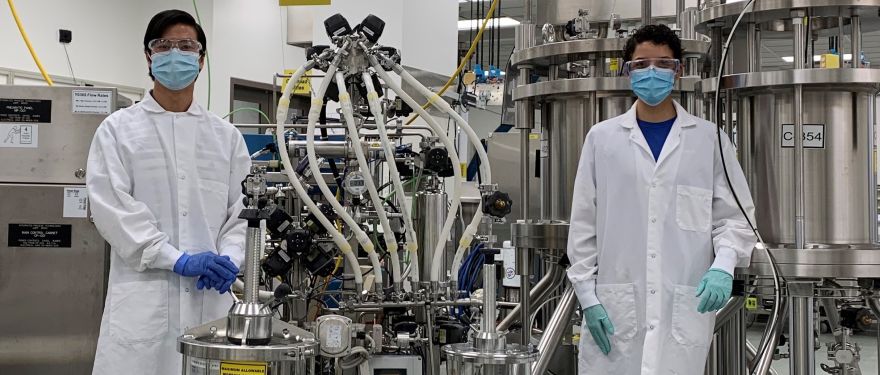What was your undergraduate university and major?
MIT, Chemical Engineering
Why did you decide to apply to HBS via the 2+2 deferred admissions process?
One of my mentors in college, Professor Barry Johnston, always encouraged me to seek out and solve the hardest problems. Another, Professor Emeritus Charles Cooney, taught me that the hardest problems often occur at interfaces between multiple sectors. The 2+2 program offered me a way to learn the language and tools I would need to tackle tough problems at the interface of science and business.
How long was your deferral (2,3, or 4 years)?
2 years
Did 2+2 change your path or alter your post-undergraduate plans?
Growing up, I was an awkward and nerdy kid (and still am). After classes, you could find me making flamethrowers, rock candy, and California snowballs for Chemistry Club, which my sister and I started in my sophomore year. With that kind of disposition, I never thought I could end up in the sales organization of a beer company after college. While many of my classmates used their pre-application years to craft their resumes, I felt empowered to take a big risk knowing I had the ultimate backstop.
Where are you currently working? Can you describe your role?
I currently work at Amgen Inc at their global HQ in Southern California. Amgen is the largest independent biotechnology company in the world by revenue and our top medicines include autoimmune drug Enbrel, white blood cell booster Neupogen, and leukemia drug Blincyto.
My role sits at the intersection of R&D and Manufacturing. Once a high-potential drug candidate is identified, several critical milestones must be met prior to marketing a medicine. These milestones include generating data to confirm the candidate can be manufactured economically at scale, generating drug substance to confirm the candidate’s efficacy through clinical trials, and submitting data to the FDA for regulatory approvals. My team’s primary responsibility is to generate data and manufacture drug substance to meet these milestones.
What opportunities did you pursue during or after the 2+2 Program?
During my final semester at HBS, I had the opportunity to write a case titled Cannabis: Growing Profits for Real Estate with Professor Charles Wu. In it, we examined how the shifting regulatory and economic landscape of cannabis was affecting industrial real estate in the US. It drew on the diverse perspectives of HBS faculty and students, colleagues from Harvard’s Design School, and an HBS alum. One of the best moments of my HBS experience was when our case was accepted for publication and added to the Real Property case schedule.
What impact has HBS had on your career?
HBS Professor Paula Price said it best: build your towering strengths. HBS attracts some of the most driven, intelligent, and capable people in the world. Being in that environment made me question the qualities I previously thought made me unique. Realizing that I would never be the best at everything or even most things, I now look for opportunities to enhance and refine the qualities that give me an edge and have the potential to become towering strengths.
Are you still in touch with your fellow HBS students/section mates?
Yes! When I needed a dinner-mate, there was always one, or six, available. When I made controversial or cringeworthy comments, they always gave me the benefit of the doubt. When I doubted myself, they offered excuses and encouragement. And when I began to crack under the pressures of HBS, they provided safe harbor. These are some of the most intimate relationships I have ever made. It’s an honor to continue to have them in my life.
What is the most inspiring/exciting project or opportunity you’ve worked on?
I am currently part of a small team that is responsible for leading the first commercial scale manufacturing run of a COVID-19 therapeutic. Its success is far from assured but I’m grateful for the opportunity to answer the global call-to-action.
What advice do you have for prospects considering the 2+2 program?
As a kid, I always felt immature for my age. Being a few years younger than my peers at HBS heightened that feeling. Many of my closest classmates were ready to start families. Their calm and sense of purpose contrasted with my impulsivity. Others saw HBS as a catalyst for specific career paths, whereas I felt I was still finding my way. I saw many of my classmates as role models and leaned heavily on them for advice, but sometimes I felt guilty I had comparatively little to offer in return. While I wish I had considered this tradeoff more fully, I’m grateful that my sectionmates and classmates always made me feel like a valued member of the community.

